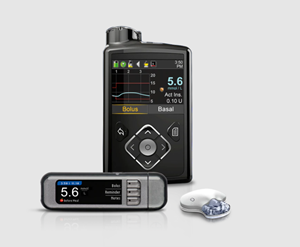
News Releases
Multinational Medtech Company Celebrates Canadian roots
Since Medtronic’s inception six decades ago, its mission has remained the same: to alleviate pain, restore health, and extend life for people around the world. The company, which grew from...
Since Medtronic’s inception six decades ago, its mission has remained the same: to alleviate pain, restore health, and extend life for people around the world. The company, which grew from founder Earl Bakken’s tinkering in his garage in Minneapolis to a $29-billion global enterprise with operations in over 160 countries, has continually been at the forefront of medical device innovations that help to improve people’s lives. Although only representing a fraction of its offerings, Medtronic is perhaps best known for its pacemakers and insulin pumps.
An astounding 70 million people worldwide benefit from Medtronic technologies each year ― equating to two people every second.

A key part of Medtronic’s evolution was proving the economic value of its devices as a cornerstone of its business strategy in 2012. For instance, an assessment of insertable cardiac monitors estimated that from 2002-2011, the devices saved Ontario $7.1 million through avoiding costly diagnostic tests and ER visits.
We are no longer just a devices company,” said Neil Fraser, president of Medtronic Canada. “While meaningful innovations remain a key part of what we do, we have added services and solutions to our offerings in order to more effectively deliver on our mission.”
Medtronic founded Medtronic Integrated Health Solutions (IHS) in 2013 to focus on system-level services and solutions. It works with hospitals and health systems to help them develop strategies to deliver more efficient, cost-effective, and timely care to patients. The IHS team has worked with selected cardiac, surgical and outpatient programs to address inefficiencies and bottlenecks, boost capacity, and streamline processes.
Working with the William Osler Health System’s Diabetes Education Centre at Brampton Civic Hospital, Medtronic IHS helped realize 2,600 hours of process efficiencies, which freed up time to conduct 33 per cent more patient visits, while reducing wait times from up to two months, to less than three weeks. Costly no-shows were reduced from 45 per cent to just five per cent.
PROUD CANADIAN CONNECTIONS
A number of innovations offered by Medtronic can be traced to the research of Canadian medical pioneers.
Many Canadians know insulin was discovered in Canada by Dr. Frederick Banting and Dr. Charles Best, which led to today’s sophisticated insulin pumpsut few likely know that Canadians also led the discovery of the pacemaker.
In honour of Canada’s 150th anniversary, we would like to acknowledge and celebrate the contributions of Canadian researchers and healthcare professionals to several of the technologies we offer, starting with the pacemaker,” said Fraser.
Dr. Wilfred Bigelow, Dr. John Callaghan and electrical engineer Jack Hopps, known as the Toronto Group, are credited with coming up with the world’s first pacemaker in the late 1940s ― a lunchbox-sized device that plugged into a wall outlet, and delivered electrical pulses to either kick-start a stopped heart or keep it beating regularly.
Decades later, Dr. George Klein at London Health Sciences Centre and Medtronic Canada jointly developed RevealTM, an insertable cardiac monitor (ICM) ― offering continuous cardiac monitoring to help determine the cause of unexplained fainting or stroke.
Appropriately enough, Canadians have been behind some important innovations that use extremely cold temperatures to treat patients or their symptoms.
Dr. Marc Dubuc at the Montreal Heart Institute developed Medtronic’s Arctic Front Cryoablation system. It is the first cryoballoon in Canada licensed by Health Canada to treat patients with paroxysmal atrial fibrillation (AF), or irregular heartbeats in the heart’s upper chambers.
The technology is novel because it ablates or blocks the conduction of AF in cardiac tissue through the use of a coolant, rather than heat. This freezing technology allows for better catheter stability during ablation.
Last year, Medtronic acquired Baylis Medical’s OsteoCool device, which uses a pair of cooled radiofrequency probes to ablate metastasized cancer lesions in the spine to reduce pain.
“We are very proud of our presence in Canada, as well as our history collaborating with Canadians to improve clinical outcomes,” said Fraser. “We look forward to continuing our collaboration, with physicians and health systems, to establish aligned, value-based healthcare models that deliver better patient outcomes.”
In 1968, Canada became home to Medtronic’s first subsidiary outside the U.S. In all, Medtronic holds more than 80 patents involving a Canadian.
The company’s Canadian division, headquartered in Brampton, employs more than 1,200 people across Canada and has regional offices in Montreal and Vancouver. It is one of the largest medical technology employers in Canada and has won numerous awards over the years for being a top employer in Canada.
Reprinted with permission of Perspective